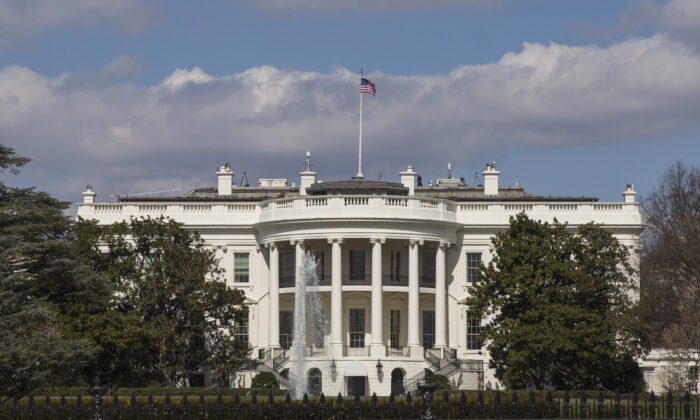WASHINGTON鈥擳he White House has asked U.S. government agencies for extensive details of any funding that seeks to counter China’s global influence and business practices, or supports Beijing, amid growing tensions between Washington and Beijing.
According to an Aug. 27 White House Office of Management and Budget (OMB) document seen by Reuters, the OMB directed U.S. agencies to submit “cross-cutting data on federal funding that aids or supports China, or that directly or indirectly counters China’s unfair competition and malign activities and influence globally.”
China denies it engages in unfair competitive practices.
The document, titled “Strategic Competition with China Crosscut,” does not say how the information will be used other than that it will “inform policymakers” of the myriad ways U.S. government spending involves China.
The United States and China have grown antagonistic toward each other with disagreements that stretch from a two-year-old trade war, to the Trump administration blaming Beijing for a lack of transparency about the spread of COVID-19.
The sweeping budget data request will be used to help policymakers and notes all funding should “reflect strategic priorities” when responding to China.
Some U.S. programs and spending under review date back a decade or more. The document directs federal agencies to respond by Sept. 21.
A spokesman for OMB confirmed the agency effort, telling Reuters that “to ensure that the United States remains strong and in a position of strength against rival nations like China, OMB has asked federal agencies for all funding meant to counter China, or which could aid China.”
The memo includes instructions on how to submit both classified and unclassified U.S. spending details and seeks details of all U.S. government funding directed for spending inside China.
The White House document asks for data for all U.S. government funding used to “counter malign Chinese influence or behavior incongruent with American interests.”
It cites as examples “funding for programming to counter the One Belt One Road (OBOR) or Belt and Road Initiative (BRI); funding for military operations, equipment, and infrastructure, the primary purpose of which is to deter aggressive Chinese behavior.”
It also seeks details of “secondary” U.S. efforts on China like “marginal contributions which were necessary to maintain a U.S. lead over China in terms of voting power within key international organizations” and funding for other U.S. efforts.
The document also seeks data on U.S. government funding for programs whose primary purpose is to counter Chinese technological prowess in key sectors like 5G and wireless communications, semiconductors, artificial intelligence and machine learning, quantum computing, cyber and system security, advanced manufacturing and robotics, autonomous and electric vehicles, biotechnology, advanced energy, and space technologies.
The White House sought details of spending on technical assistance from U.S. government experts, bilateral funding for the U.S.-China Clean Energy Research center, and any other U.S. bilateral economic assistance programs.
It also seeks data on “HHS (Health and Human Services) funding for CDC (Centers for Disease Control and Prevention), NIH (National Institutes of Health), and other programming in China.”
The request also seeks details on any spending that “would overall contribute to Chinese GDP or technical capacities, including to Chinese government or military entities, State-owned commercial or industrial entities, and entities functionally directed by” Chinese government leadership as well as grants or credit provided by U.S. supported international organizations.
Agencies must submit data on 2019 and 2020 budgets enacted into law, the 2021 Trump budget proposal, and 2022 agency budget requests.
The budget review is just the latest effort that could lead to more actions against China.
Last week the United States blacklisted 24 Chinese companies and targeted individuals it said were part of construction and military actions in the South China Sea, the first such U.S. sanctions move against Beijing over the disputed strategic waterway.
By David Shepardson
Focus News: White House Asks US Agencies to Detail All China-Related Funding
Report Outlines a Decade of Beijing’s Coercive Diplomatic Tactics
